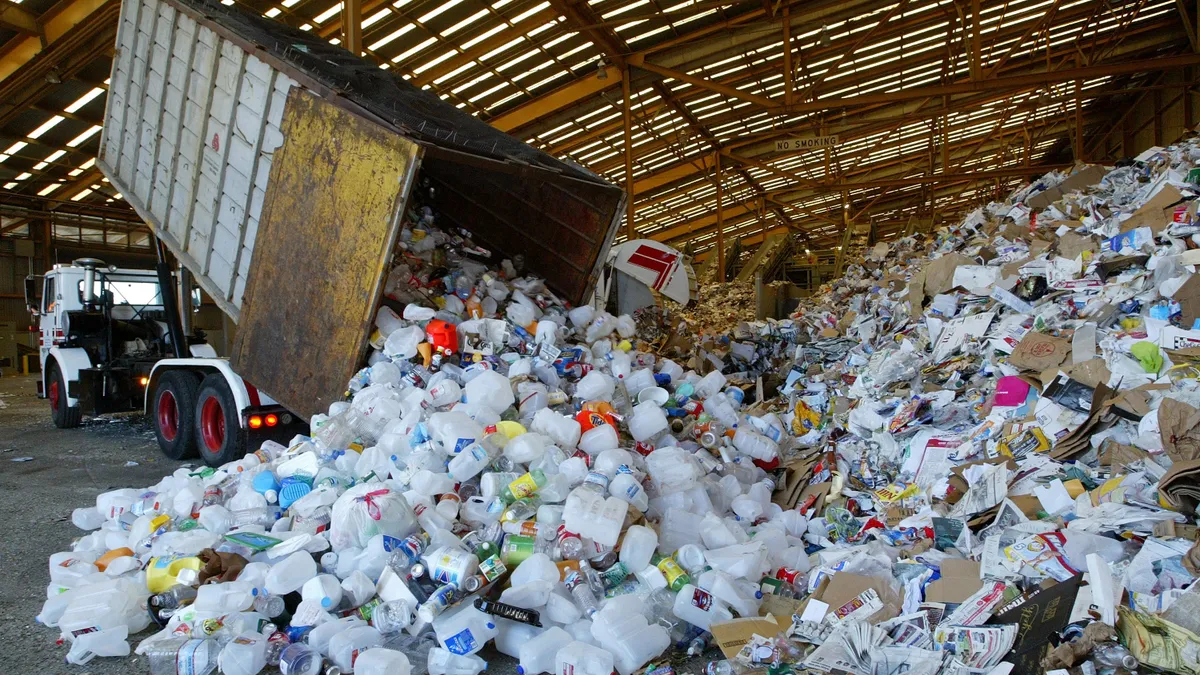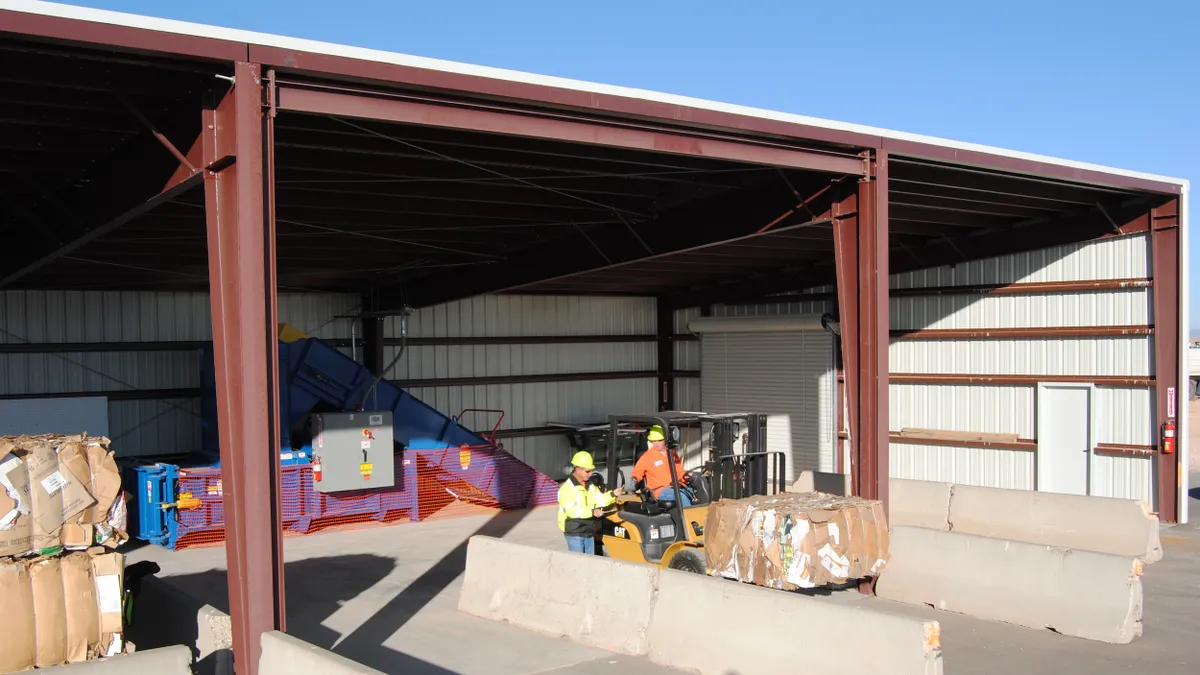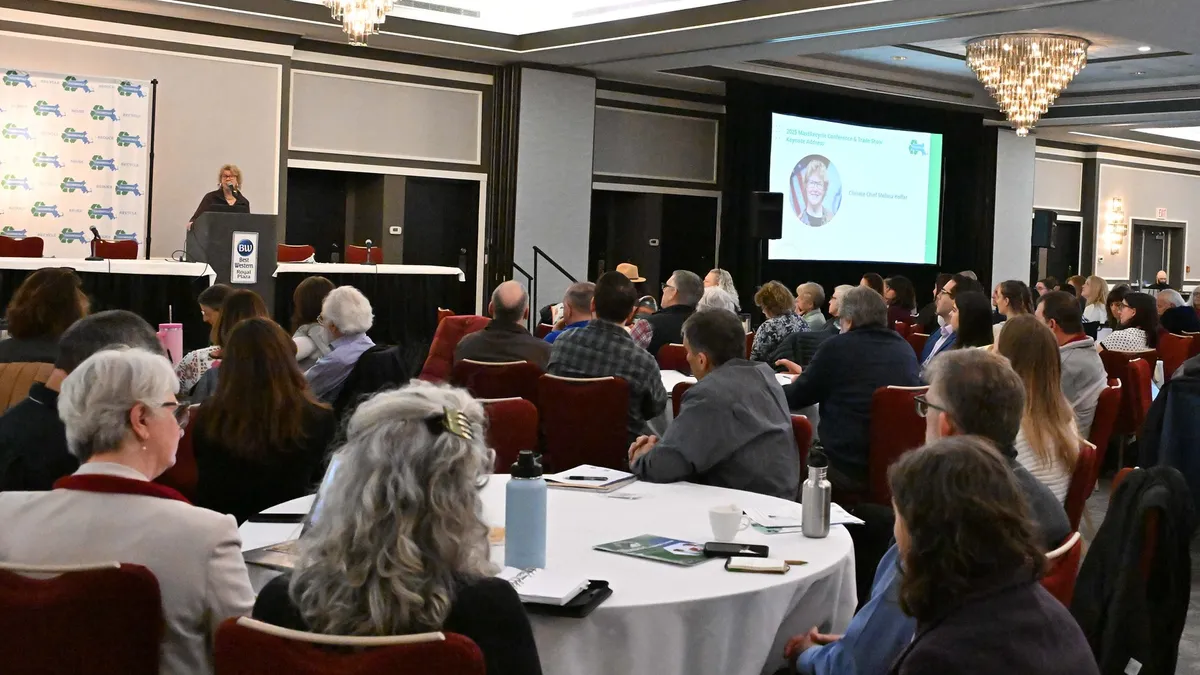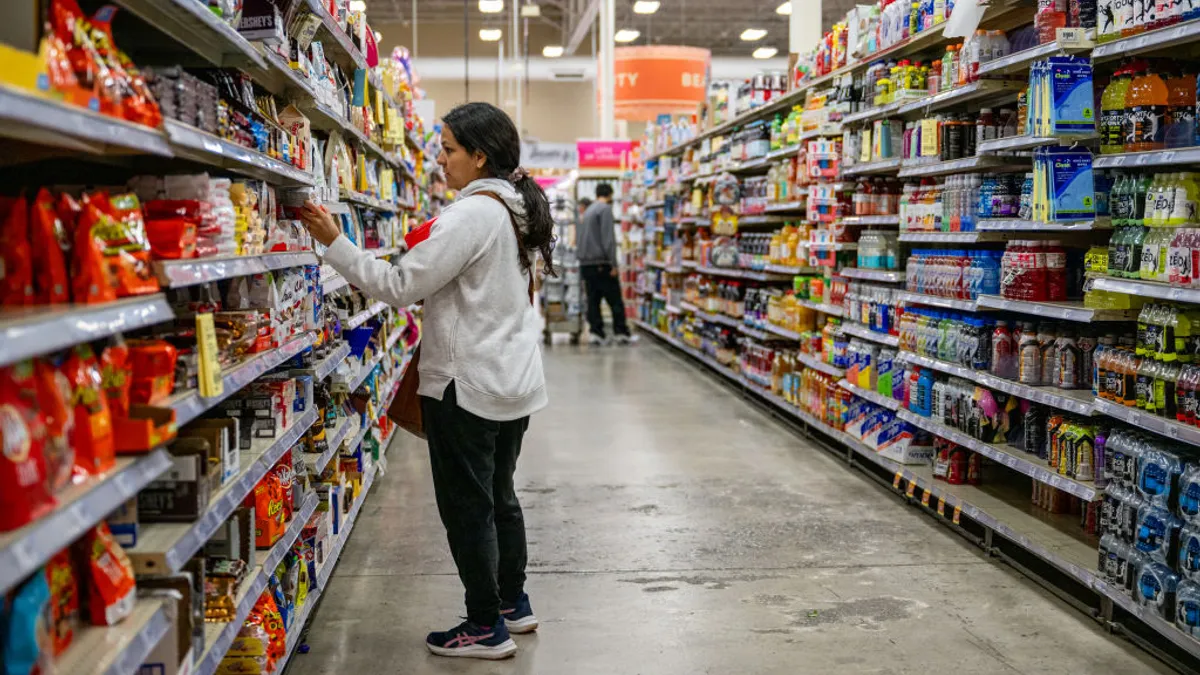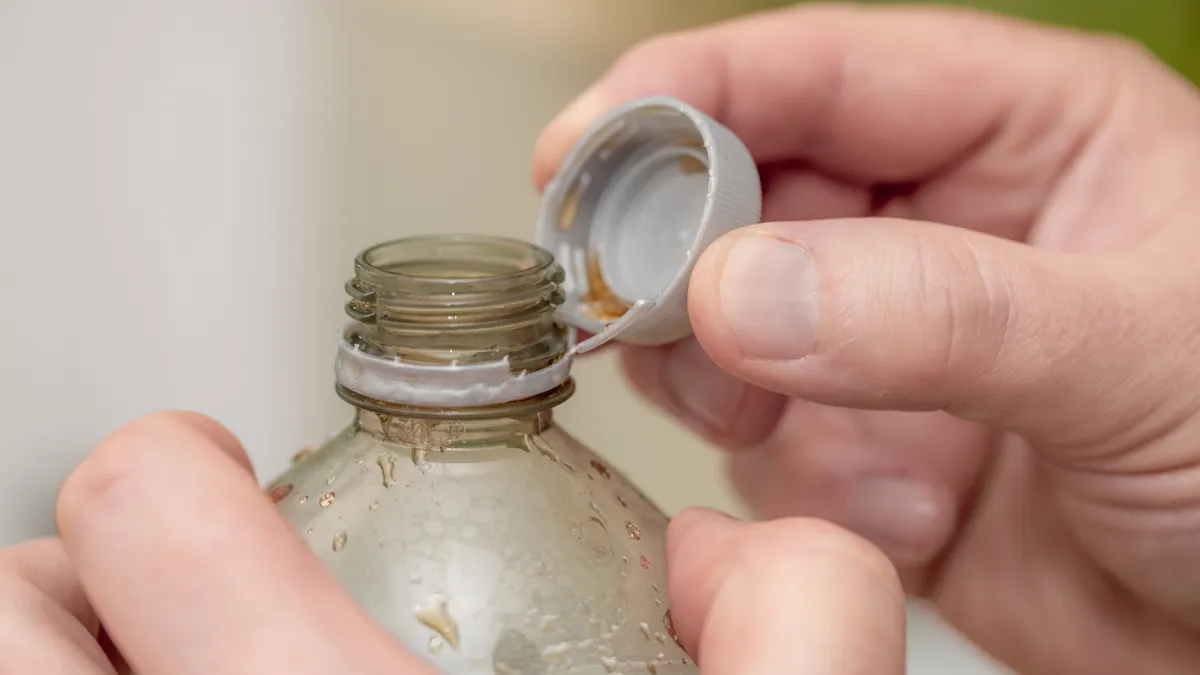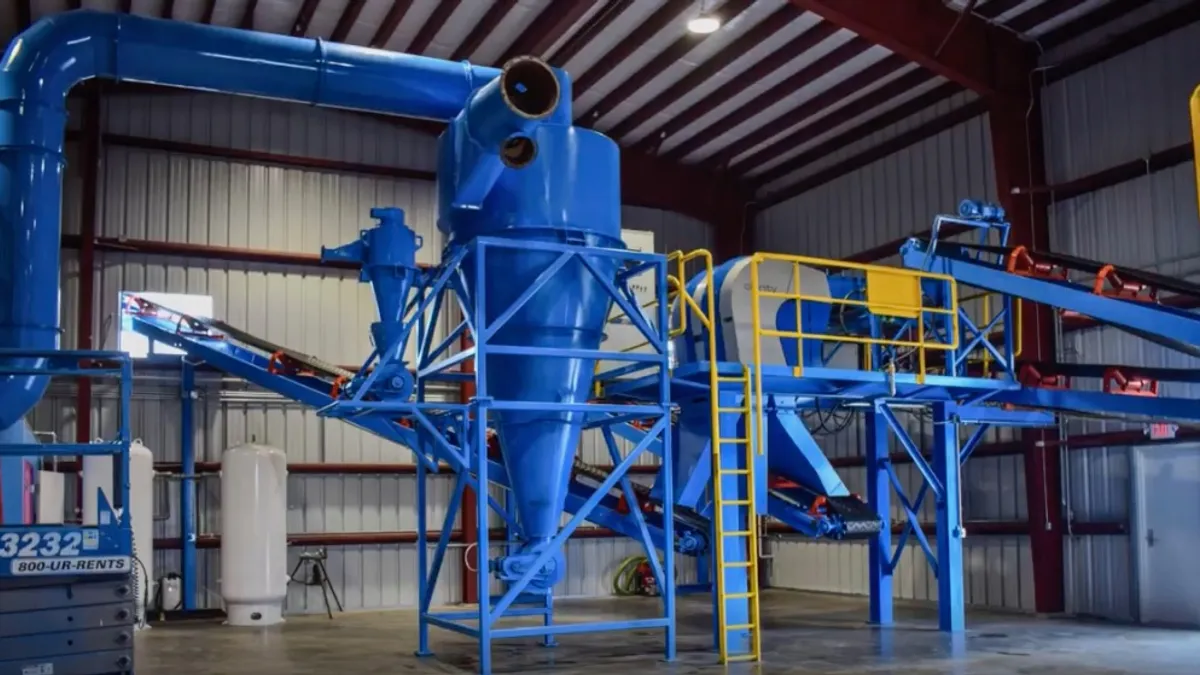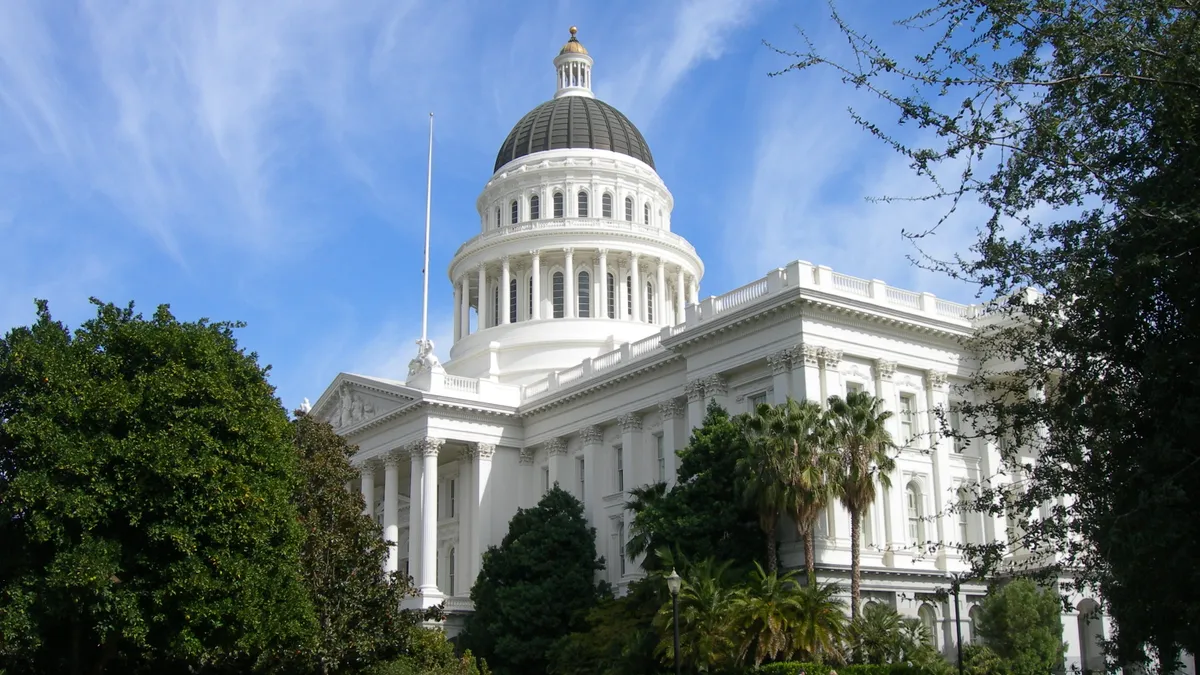The legislative landscape is more complex than ever before as state lawmakers take on the more detailed aspects of major recycling strategies in 2024.
Extended producer responsibility programs for packaging and other materials will continue to be a notable priority for legislators in many states, just as in prior years. Many of those bills are expected to include recycled content mandates, call for additional waste diversion methods or mull the role of chemical recycling as a processing strategy.
States are also continuing to tackle updates to container deposit laws, while several states that don’t currently have bottle bills are putting forth new legislation to establish new programs.
Lawmakers are becoming more comfortable with the complexities around EPR and container deposit systems, and they are also embracing the ways that recycling and waste management issues play into broader climate discussions, said Mara Herman, a policy specialist at the National Caucus of Environmental Legislators.
“Plastic pollution is such an overarching issue, so looking at different ways in which we can work upstream to take care of some of this plastic pollution is something that's really of interest” to legislators, she said.
Another type of policy gaining steam in 2024 is the right-to-repair movement, which recyclers see as a key to keeping e-scrap from disposal. Right-to-repair legislation had a breakthrough moment last year when such laws passed in three states, and policy experts think more bills could pass this year.
Like previous years, analysts see state action as the most nimble way to update recycling policies, especially since the divided 118th Congress has not yet passed any notable federal recycling-related legislation — including two recycling bills widely applauded by the waste and recycling industry.
New approaches for EPR momentum
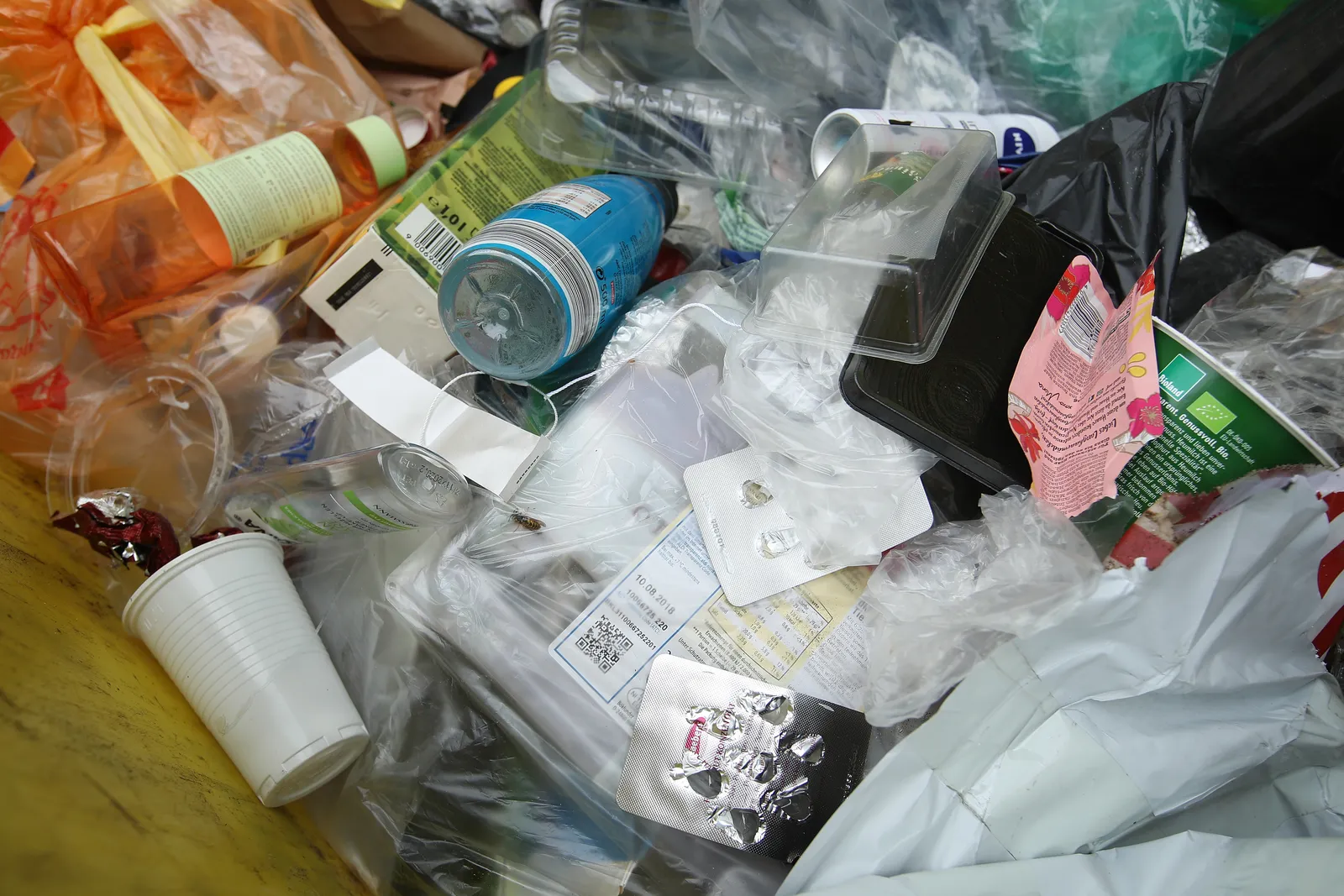
EPR legislation continues to become more complex and widespread in 2024, following momentum from steady activity in 2023. So far, states like New Hampshire, New York, Rhode Island and Washington have introduced EPR bills for packaging. Massachusetts also multiple EPR bills in play.
Last year, Illinois and Maryland also passed bills to conduct needs assessments to provide data that could serve as the foundation for eventual EPR policies. This could be the year some states prioritize EPR study bills over full program legislation, especially for packaging-related bills, said Scott Cassel, CEO of the Product Stewardship Institute. Hawai’i is one state expected to take that route, he said.
With all the well-known hurdles to passing a full EPR bill — competing stakeholder priorities, disagreements about producer control and worries over costs and impact on MRF operators — Cassell said that “some legislators may feel more comfortable doing it this way, which could lead to them feeling more comfortable with moving forward with EPR the following year.” A state that conducts a needs assessment, he said, “may gain a greater understanding of its reuse and recycling system: what's needed, what the costs are.”
2024 will also be a year of implementation for states that previously passed EPR for packaging bills, meaning the industry is expected to get more details on how such laws will impact MRFs, recyclers and the overall waste industry.
New York is among the states that will again tackle the years-long battle over how to build the right EPR for packaging policy. Last year, it had competing bills, plus a version backed by Gov. Kathy Hochul, but ultimately lawmakers ran out of time in the session to make meaningful progress.
State Sen. Peter Harckham said the EPR version he introduced in 2024 is meant to unify stakeholders better than in years past. Deborah Glick sponsors the bill in the Assembly. “We met with scores of stakeholders, many of them multiple times, to hear their concerns,” Harckham said during a press event in January. “We are committed to really working hard and making this our number one priority to get through this year.”
EPR for packaging proponents are also making moves in states that are less known for such legislation, such as Tennessee. Proponents of last year’s bill say the legislation is a powerful way to reverse the state’s underperforming recycling system, as it currently ranks 48th in recycling among all states, according to a report from Ball and Eunomia. Such groups are working to get the bill passed this year.
“We fully support this legislation that promises to create local jobs in Tennessee’s recycling sector while tackling our dwindling landfill space head-on,” said Jeffrey Barrie, CEO of the Tennessee Environmental Council, in a statement.
Bills for EPR policies related to paint and batteries could also gain traction across the country in 2024. New York and Vermont are among the states working on batttery EPR bills, Cassel said, while Missouri is working on an EPR for paint bill. One of Massachusetts’ EPR for packaging bills also includes a paint provision. Other states could introduce mattress EPR legislation this year, he added.
In California, EPR for textiles is expected to make a comeback and could be the first of its kind in the nation if it passes. The California Product Stewardship Council, which led last year’s version, converted it into a two-year bill to give it more time for stakeholder engagement. The bill had enjoyed significant support from Republic Services, along with the National Stewardship Action Council, Californians Against Waste and a coalition of environmental groups.
Heidi Sanborn, executive director of NSAC, said it’s too early to definitively mention what other types of products could get attention in the state during this session, but said “there should be some significant new EPR bills coming in California this year.”
Bottle bills continue to push forward

Bottle bills — both new programs and expansions of existing laws — have been notoriously difficult to pass. Yet some experts say key successes from 2023 could spell continued improvements in other states in 2024.
Last year, California expanded its program to include juice containers and updated its payment structure for redemption centers, while Maine passed a pair of bills meant to raise handling fees and ease sorting requirements for redemption centers while also promoting reuse strategies. However, Vermont was not able to pass its own bottle bill update; Gov. Phil Scott vetoed it over the summer and the legislation didn’t survive a subsequent veto override process in January.
This year, proponents in Massachusetts are pushing for updates to one of oldest bottle bills in the country. The current law covers limited types of beverages and has a 5-cent deposit. One proposal would expand the program to include more types of containers and raise the deposit value to 10 cents.
Jed Thorp, Rhode Island state director for nonprofit Clean Water Action, said during a Container Recycling Institute webinar in December that he has reason to be optimistic about becoming the next state to pass a bottle bill. There’s an increasing awareness from legislators that major changes are needed to overhaul state recycling systems, and container deposit legislation is becoming a more attractive policy option, he said.
Rhode Island’s first step is conducting a study, expected in June, on what an ideal bottle bill program could look like in the state. That report is the result of the passage of last year’s SB 5502, a study bill meant to help iron out disagreements over bottle bill specifics in the state.
Illinois is another state vying to enact the next bottle bill program. It will mull SB 85, which would establish a new beverage container redemption system. New Hampshire and Washington are among the other states that aim to establish new container deposit programs.
Though momentum on any federal-level policy has been slow, there’s still an appetite to move forward with a national bottle bill, Sanborn said. Her organization will host a lobbying event in February to garner more support for possible legislation, she said. At the same time, the Break Free From Plastic Pollution Act, reintroduced last year, also includes a national deposit return system provision.
Regardless of whether it’s a state or federal bottle bill program, Sanborn said brands and businesses “are going to need to take a lot more active role” in crafting and implementing such bills in order to reap the benefits of increased recycled content suitable for manufacturing new containers. “They just can’t go without this material anymore,” she said.
Yet such legislation will still need support from MRFs and haulers, who have historically been skeptical of the impact bottle bills could have on their business. The National Waste & Recycling Association, for example, has opposed implementation of a national bottle bill and says bottle bills reduce MRF revenue.
Groups like the Can Manufacturers Institute say bottle bill policies could be crafted to offset negative impacts on MRF businesses. Anne Germain, NWRA’s chief operating officer, said the organization is active in bottle bill discussions across the country, but typically believe such bills create undue unpredictability for MRFs. “It’s not a magic bullet,” she said.
Right-to-repair builds off last year’s success

Advocates of right-to-repair laws are gearing up for another busy legislative season, with numerous bills related to personal devices like laptops — as well as farm equipment and other electronics — already introduced or expected to be introduced soon. Recyclers see right-to-repair policies as a key to keeping e-scrap from disposal, and numerous state recycling groups, attorneys general and other stakeholders are on board with such policies.
Some of last year’s roadblocks to passage — mainly opposition from major brands and tech trade groups — have dissipated in 2024 due to companies such as Apple changing their stance on such legislation. This helped California secure a notable right-to-repair victory in October for consumer electronics. That law goes into effect in July. New York, Minnesota and Colorado also passed right-to-repair in late 2022 and in 2023.
This year, Oregon’s forthcoming right-to-repair bill has support from Google, which called Oregon’s bill “a compelling model for other states to follow.” It will be the fourth time lawmakers there will consider such a bill, which is expected to be introduced sometime after the session starts Feb. 5, according to the Statesman Journal.
Washington will also try again this year with HB 1933, which did not pass last year despite having backing from Microsoft. The Repair Association’s Washington chapter says the bill’s failure was partly because there wasn’t enough time to consider the bill, but it expects more traction this year.
Meanwhile, Illinois has introduced a bill for consumer electronics, while lawmakers in Vermont told VT Digger they’re ready to reintroduce a farm equipment repair bill.
iFixit, a major right-to-repair advocacy group, has petitioned the Federal Trade Commission to initiate rulemaking meant to regulate right-to-repair laws, and the public comment period for the petition is open through Feb. 2.



